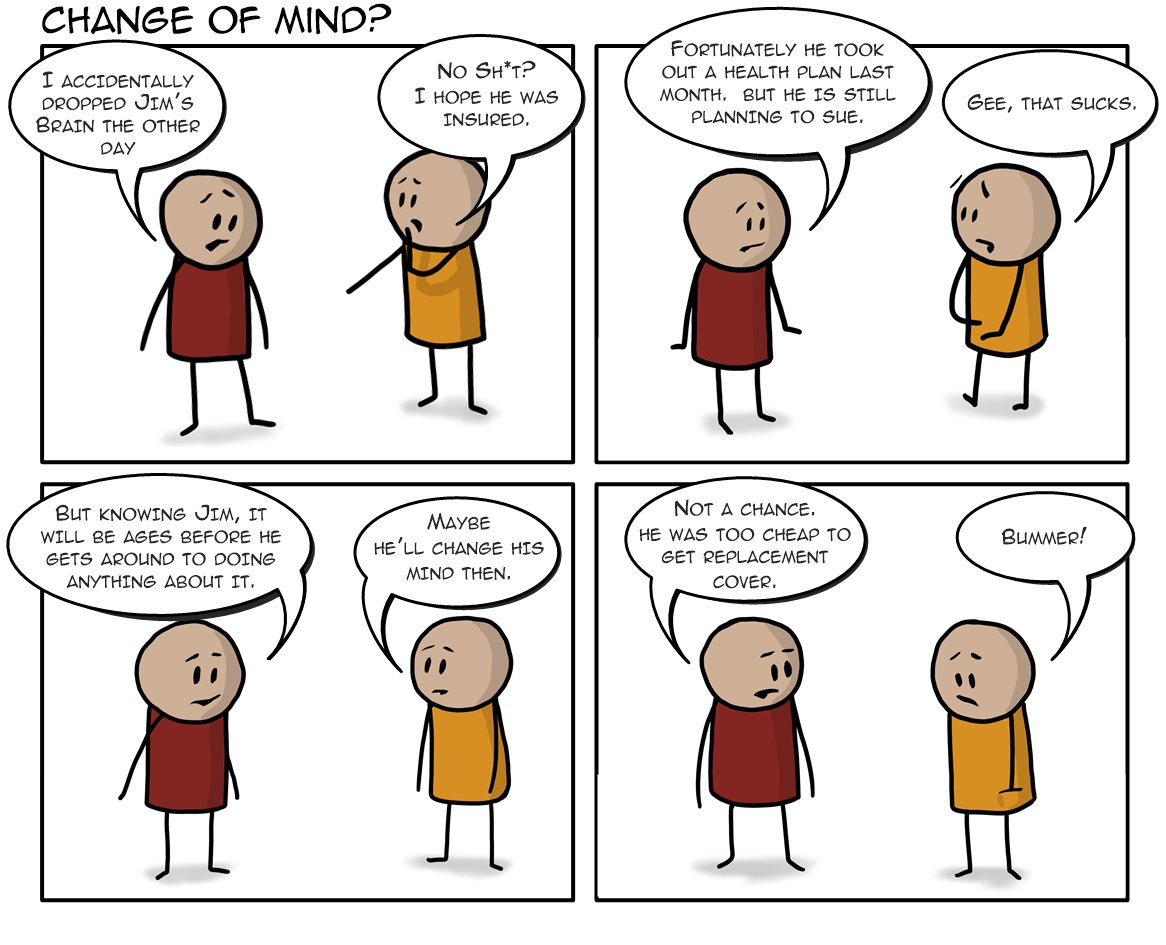Change of Brain

Most of us struggle to get our heads around low risk outcomes. Very low risk, extremely low risk and monkeys writing Shakespeare; all pretty much the same in our minds. For example, if I go for a paddle in the sea, do I worry about rip tides or having a heart attack or any one of the common reasons for dying in open water? No, I worry about being eaten by a shark.
For an US average family in 2015, annual premiums for health insurance were around $16,800*. Insurance is a wager between you and the your insurance company. Every month, the average family places a bet of one thousand four hundred dollars that one of them WILL need medical attention. How sick is that? Now if you were hoping to renegotiate your premium, bear in mind that the probabilities, and hence your payments, are calculated based on a very large number of bets using some very large computers and therefore represent real world odds. So good luck and don't forget to wear plenty of shark repellent .
We Think It Could Happen!
Anatomically speaking, humans have remained unchanged for the last 100,000-200,000 years. This means our brains are based on a design that worked well for small groups of 20-30 people. Stuff happened either to us or to whom we knew personally. If it happened once, then it could happen again.
We don't have a natural way of properly processing an event that happened to someone living on a different continent whom we will never meet. Hence we are overly influenced by extremely low probability events. Our anxiety often holds us back from doing things and instead we procrastinate. For example, if I hear about a shark attack somewhere, anywhere, I might hold back on that trip to the beach even though the risk of us having an accident enroute easily outweighs that of being a great white's dinner.
* an asterisk at the end of a link means that if you click this link you will be taken to another site.
